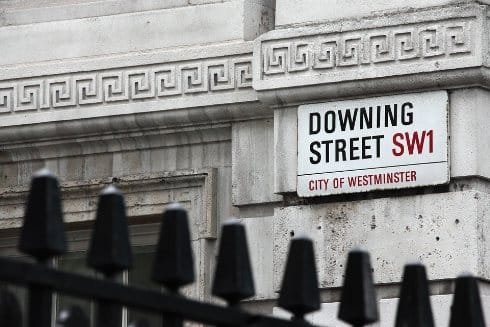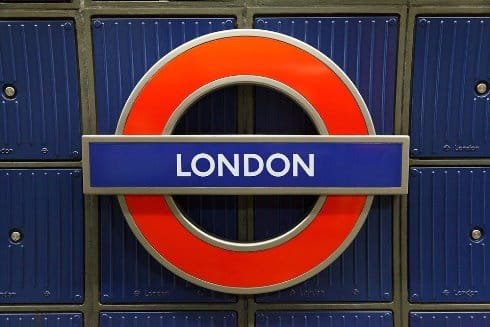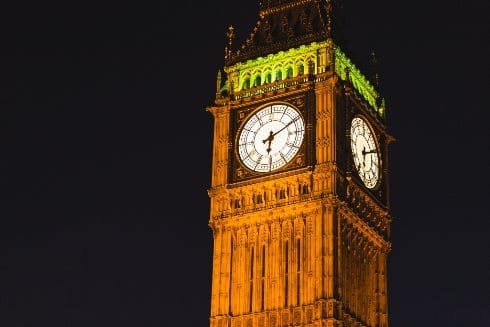A decade ago, the Conservative Party entered Number 10 for the first time since the departure of John Major in May 1997, initially as part of a coalition government with the Liberal Democrats. Four terms and three Prime Ministers later, Downing Street remains blue.
But, with increasing uncertainty surrounding Brexit and another general election booked in for December, it’s debatable whether anybody wants to be at the helm of the embattled United Kingdom any more.

Khan for a Second Term
Of course, amid the revolving door politics of the incumbent Conservatives, it’s easy to forget that the country has another question to answer in 2020, that of the position of the Mayor of London. Tooting-born Sadiq Khan is the current officeholder (and will be eligible for a second term in 2020) but he’ll face competition from the Tories’ Shaun Bailey, Siobhan Benita (Liberal Democrats), Rory Stewart (independent), and the Green Party’s Sian Berry, among others. London’s priorities have changed even since Sadiq Khan was elected to the role in May 2016 though. The previous two mayors, Ken Livingstone and Boris Johnson, focussed on improving sport and transport in the capital respectively. Livingstone famously brought both the 2012 Olympics to the capital, as well as the Tour de France. Khan, instead, pushed for a ‘greener’ city. This time, the winner of the 2020 election may well have to contend with a capital that has recently left the European Union, some 48 years since the UK first joined the community in 1972.

Let’s spoil the party. Despite criticism from US President Donald Trump, a middling approval rating on the YouGov politics website, and concern surrounding the ballooning costs of the delayed Crossrail 2 network, Sadiq Khan remains the favourite to win the 2020 election. As of 11 November 2019, the serving mayor is listed at odds of 2/5 to hold onto his seat next May. This greatly contrasts Labour’s position as far as the upcoming general election is concerned, where it can certainly be seen that the Conservatives are the favourites at odds of 25/1 with Betway for a 50% vote share, compared with Labour’s 50/1.
Rory Stewart, who is second-favourite at 3/1 to become the next Mayor of London, was described as an “anti-politician” by the Guardian newspaper, a trait that could endear him to the millennials and young people that currently favour Khan. However, as an independent, Stewart hasn’t enjoyed much visibility in the largely three-party system that has dominated UK politics for decades. The Conservatives’ Bailey, too, is something of an invisible runner (20/1) in the race for Khan’s seat. BBC Correspondent Karl Mercer described the Londoner as “lightweight” in the shadow of the already-established Khan and the unconventional, slightly younger, Stewart.
The Outsiders
Siobhan Benita, who previously campaigned for the 2012 Mayor of London election, perhaps has too divisive a list of promises for election and a minimal public profile thus far. The Lib Dems’ anti-Brexit, socially progressive stance could alienate older voters, especially campaigning so close to the January 31 EU leaving date, while the Party’s eco-friendly policies are a honey-trap for youngsters. London is a Remain city though, and Benita recently told the Independent that Labour’s “muddled” approach to Brexit could prove fatal to Khan’s chances of re-election, installing the Lib Dems as the Remainers’ bulwark against the UK’s departure from the European Union.

Serial mayoral candidate Sian Berry (Green) will stand for the third time in 2020, sharing a similar manifesto to Benita, at least as far as the environment and housing are concerned. Again, though, in a country that places a heavy emphasis on the three-party system, climate-orientated campaigns are only ever as popular as the ‘Big Three’ can make them, and the Green Party, despite attracting just under 1,000 new members a month recently, remain something of a fringe party with niche appeal. In much the same vein, the Women’s Equality Party, which is putting forward computer scientist Sue Black for the 2020 Mayor of London election, has progressive policies but too narrow a focus on services for one segment of society, specifically, education, childcare, and communities for women and girls.
In all likelihood, Sadiq Khan will get another opportunity to represent London’s citizens come next May, while Rory Stewart looks good for the future. The current mayor has a job to do though with regard to overdue (and over-budget) improvements to the transport infrastructure in London – and he must curb growing civil unrest in the city.

